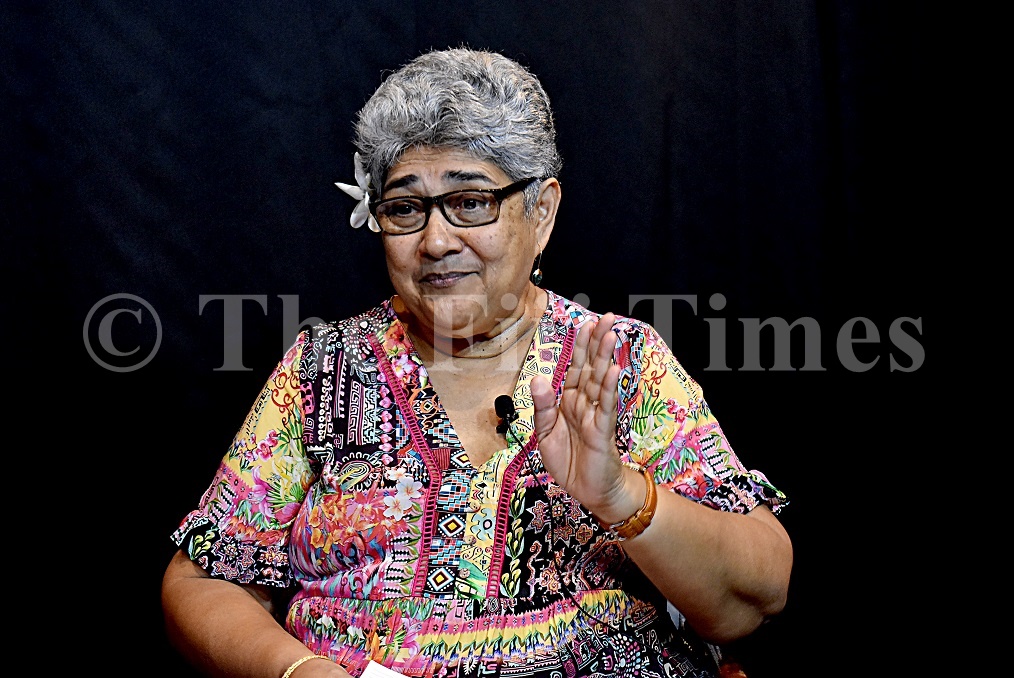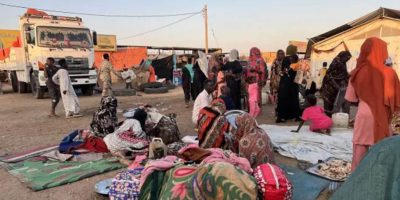ADDRESSING gender inequality in Fiji remains a complex challenge rooted in deep societal norms and patriarchal traditions, says the Fiji Women’s Crisis Centre coordinator Shamima Ali.
She said this in response to revelations at a panel discussion on Leadership and Gender Equity to Promote Women’s Leadership in the Pacific on Tuesday, that women representation in the Parliament stood at just nine (9) per cent in 2025, even though more women than men voted in the last election.
Ms Ali pointed out that despite over 70 per cent of tertiary graduates in Fiji being women, very few held top positions in trade unions, education, politics, or the workforce.
“So, it’s an ongoing issue, and the issue is because in a patriarchal society like ours, we often see men as leaders, and we are conditioned into that, that men are the leaders.”
She said historically, men were leaders and women were conditioned to think that men make the best leaders, and they should vote for them.
“It’s not that they don’t support women, it’s because they don’t understand the gender dynamics, and we are not used to seeing women as leaders. So, therefore we don’t vote for them.”
She said many women also voted according to their partners’ choices.
Ms Ali said there was a lack of motivation and encouragement for women from women leaders as well. “I haven’t seen women leaders who are encouraging of other women. They tell women, without understanding the gender dynamics, they tell women to stand up — “Look, I have reached here, you can do that too”.
“It’s not that easy. If you are not in a privileged position, you can’t do that.”
She said political parties also needed to provide women with space and opportunities, funding and power within parties.
Ms Ali said feminist movement throughout the world, including Fiji, were pushing for temporary special measures for elections.
“These are very important. It’s a type of affirmative action for women, recognising the uneven playing field, and this is very important, which many people do not support, including many women leaders.
“It’s temporary special measures whereby we allocate seats to women in each political party, and seats in Parliament — so that we create what we call a critical mass of women in governance, in politics at that level.
“Then people start seeing women as leaders, and those positions are open for any woman, not only the privileged few, or those who only say ‘yes sir, yes sir’ to men.
“And once people start getting used to seeing that women are doing well, then at voting time they start voting for women, they have faith in women and that gender lens is removed, then we can remove the special measures.”
Call to empower girls
FIJI Women’s Crisis Centre coordinator Shamima Ali says girls’ selfesteem needs to be built from a very young age.
She said girls should not be discriminated from a young age.
“We celebrate girl children, as we do boy children,” she said.
“We must not discriminate, but we must look at the realities and build our girls’ self-esteem, how we treat our girls, what positions are they given when they’re graduating? Who do we prefer when they come for job interviews? “It’s a whole lot of changes that we can make, and we have to make, if there is a political will.”
Ms Ali said the feminist movements had been doing their best to empower women.
“The political will has to be there from the authorities, from the people who govern us at the moment to be able to do that, to put words into action.
“And we need all of us together and start from the girl child, from the time she is born to the time that she grows up.”
She said there had to be a lot of awareness on patriarchy and how the gender dynamics played out in our society.
“The authorities have the power to change things. We can have policies that are working policies, not just on paper and celebrate the launch of this policy and that policy.
“Where is the action? What are we doing about it? So all of us as a society, we have to participate. That means the religious, the traditional, the politicians, the leaders, all of us, the youth leaders, we all have to be in there to be able to encourage this.
“We need to pour in a lot more resources and we really need to find solutions ourselves.”
Few women on boards
WOMEN remain significantly underrepresented on boards across both the public and private sectors.
At a panel discussion on Leadership and Gender Equity to Promote Women’s Leadership in the Pacific at the University of the South Pacific (USP) on Tuesday, Minister for Women, Children and Social Protection Sashi Kiran said recent survey showed that only about 20 per cent of board members in state-owned enterprises were women.
“In the private sector, similar trends are observed, with women making up approximately 20 per cent of directors across various organisations,” Ms Kiran said.
“Alarmingly, research also indicate that around 42 per cent of boards in Fiji has no women at all, highlighting the persistent gender gap in leadership positions and the need for stronger policies and initiatives to promote women’s participation at the highest levels of decision making.
“That tells us something powerful: women are participating, they are engaged, but the systems of leadership are still not fully open to them, or they may be unconscious bias in the way we perceive leadership or who could lead us.”
Kiran: Women’s representation drops to 9%
WOMEN representation in the Fijian Parliament peaked at 20 per cent in 2018, dropped to 14 per cent in 2022, and now stands at just 9 per cent in 2025, even though 238,389 women voted in the last election, surpassing men’s turnout.
Minister for Women, Children and Social Protection Sashi Kiran highlighted this at a panel discussion on Leadership and Gender Equity to Promote Women’s Leadership in the Pacific at the University of the South Pacific (USP) on Tuesday.
The Fiji Times has yet to receive a response on questions on what happened to these women’s votes and why women did not vote for women.
Ms Kiran had also highlighted the Pacific region had the lowest level of women’s political participation in the world.
She said discriminatory attitudes, traditional gender divisions, and entrenched social norms could prevent women from being involved in decision-making.
“In some communities, women’s voices are still channelled through men.
“The Pacific experiences some of the highest rates of violence against women globally, which is both a barrier to leadership and is often exacerbated by climate and economic crises.”
She said women often faced financial constraints and had less access to economic resources, training, and technology, all of which were necessary for advancing into leadership role.
















